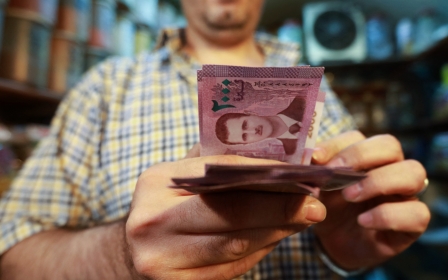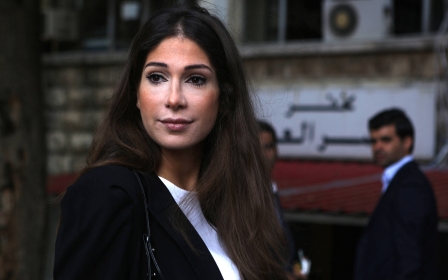Arabic press review: Moroccan jailed for 'offending king' over Israel deal criticism

Moroccan jailed for criticising Israel normalisation
A Moroccan court sentenced a man to five years in prison over Facebook posts in which he criticised the normalisation of relations with Israel, according to the London-based Al-Quds Al-Arabi newspaper.
The court considered his posts "offensive to the Moroccan monarchy".
Lawyer Hassan al-Sunni said his client, Saeed Boukyoud, 48, "was sentenced to five years in prison for posts denouncing normalisation with Israel, which was understood as a criticism of King Mohammed VI".
The posts in question were published in December 2020 by Boukyoud, who at the time was living in Qatar, and came just as Morocco signed a normalisation deal with Israel.
New MEE newsletter: Jerusalem Dispatch
Sign up to get the latest insights and analysis on Israel-Palestine, alongside Turkey Unpacked and other MEE newsletters
Sunni said his client deleted the posts and closed his Facebook account when he learned that there was a case against him in Morocco. He was arrested when he travelled back to Casablanca last week.
The lawyer described the verdict as "cruel and incomprehensible", saying that his client "assured the court he intended to denounce normalisation and not offend the king".
Arrests in Egypt linked to presidential vote
Egyptian security services have launched a campaign of arrests in different cities ahead of next year's presidential elections, according to a report published by the London-based Al-Araby Al-Jadeed newspaper.
At least 28 people have been detained as part of the campaign, which has targeted members of the Muslim Brotherhood, sympathisers with the group and supporters of the late president Mohamed Morsi.
Human rights sources said the investigations of the detainees focused on "the position of the Brotherhood's members on the upcoming presidential elections, and the possibility of the group supporting any candidate running against President Abdel Fattah el-Sisi".
The sources suggested that the campaign of arrests would continue until the date of the presidential election, which is expected to be held in February.
The Muslim Brotherhood said in a statement that "rumours about the group's communication with one of the potential presidential election candidates is unfounded and has nothing to do with reality".
Khalaf Bayoumi, director of the El Shehab For Human Rights, said "arbitrary arrest and enforced disappearance" recently have targeted members of the Islamic movement and those close to politician Ahmed Tantawi, a potential presidential candidate.
Mohamed Ramadan, a human rights lawyer, told Al-Araby Al-Jadeed that anyone opposing Sisi or calling for a boycott of the polls will likely be targeted.
"The pace of arrests or harassment of all opponents of the Egyptian regime will certainly increase," Ramadan said.
Jordan holds Israeli who crossed border
The Jordanian army detained an Israeli national who attempted to "infiltrate" its territory, the state news agency Petra said on Wednesday.
"The Jordanian Southern Command thwarted, on one of its fronts, an infiltration attempt from the other side into Jordanian territory illegally," the agency said.
Quoting a military source, Petra said the army applied the rules of engagement and arrested the man before handing him to the relevant authorities.
Shortage of essential goods in Egypt
Egypt is witnessing a shortage of essential goods and medicine in shops, which is threatening to exacerbate the present economic crisis, the London-based Arabi21 online news outlet said in a report on Thursday.
Sugar is one of the main items that has become scarce despite a recent government decision to ban its export for three months to meet internal needs.
The high demand for sugar has pushed up its price by 26 percent within a month from June to July, according to Hassan al-Fandi, head of the sugar division at the Egyptian Chamber of Food Industries.
Food prices have generally been rising in Egypt since last year, with the inflation rate hitting 41 percent, according to the Arabi21 report.
Pharmacies are also facing a shortage of medicine, both imported and internally manufactured.
"The lack of medical supplies has become a serious matter," said Mahmoud Fouad, the director of the Egyptian Center to Protect the Rights of Medicines.
Urging the health ministry to address the issue in a Facebook post last week, he added that patients are having to wait for months to get adequate care due to the lack of supplies.
*Arabic press review is a digest of news reports not independently verified as accurate by Middle East Eye.
Middle East Eye delivers independent and unrivalled coverage and analysis of the Middle East, North Africa and beyond. To learn more about republishing this content and the associated fees, please fill out this form. More about MEE can be found here.






